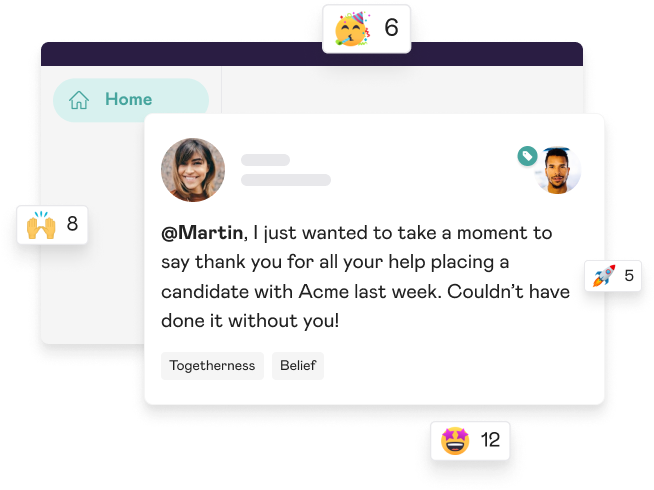Your organisation’s culture is key to driving success, but it isn’t a static thing. Even cultures that appear strong and resilient may drift or fail to keep up with changing times. You need to know how to guide those all-important changes to organisational culture.
The power of a strong organisational culture
The culture of your organisation affects every single element, from hiring and staffing to productivity and engagement. A good organisational culture is which creates a feeling of stability and connection for your employees.
Your culture is made up of the values, beliefs, and attitudes of your employees at all levels of your organisation. You need to carefully guide your culture to ensure it stays strong. To have a high-performing culture, you need to put effort into it and know when it’s in need of a refresh.
How to spot a culture ripe for change
There are many different circumstances that prompt a need for change, from the small to the large. You may need to start thinking about spearheading a cultural change in times of:
Significant growth
It’s inevitable that things will change when you’ve experienced a period of growth. The strategies that once fit perfectly may start to cause problems. When a staff pool grows, it may be necessary to have stricter control over processes and procedures.
What used to be a close-knit culture with easy access to owners or leaders may become less intimate as a company grows. Therefore, you will need to find new ways to communicate and strengthen your values.
Employee dissatisfaction
When employees are frustrated, disgruntled or failing to follow processes, it’s probably time to make a cultural shift. A bad environment leads to rebellion and unhappiness, while a good one promotes problem-solving and happiness for all.
Attraction and retention issues
A company’s culture can be one of its biggest assets when it comes to recruitment, with Glassdoor reporting that 77% consider a company’s culture before applying. Likewise, if you’re having trouble retaining your talent, there’s a decent chance that your culture is the culprit.
Acquisitions and mergers
A merger or an acquisition naturally throws many established processes into flux. You may be faced with two competing cultures or find that the move has completely changed the landscape of your organisation. This feeling of dislocation and uncertainty can have a big impact on employee engagement and satisfaction.
The importance of change
If you see a problem with your culture, it’s easy to understand the advantages of adopting a new strategy. Sometimes, you may believe that things are working well and that there’s no point in mixing things up. However, change is essential for every business.
Change allows for experimentation and innovation while also leaving space for employee development. It’s essential for keeping a competitive edge and keeping high-performing teams engaged and motivated.
Challenges of managing culture change
Some changes to organisational culture may be years in the making, others are much more reactive and can take place in a shorter space of time. For both, the biggest challenges are around making sure that your employees are on board and comfortable with the changes happening around them. The biggest challenges you’re likely to face are:
- Lack of motivation
- Resistance to change
- Failure to buy in
While true change comes from the top, it’s not something that can be implemented without the cooperation of the majority of your workforce. Tackling these challenges face-on is the best way to drive lasting change.
How to change organisational culture
If you want to create lasting change without unnecessary disruption or stress, here are some best practice methods to follow.
1. Communicate the why and the how
Absolutely essential for any strategy of change is clear and effective communication. This should encompass not only the changes you want to see, but the rationale behind them. It is much easier for employees to buy into changes and invest their energy when they can understand the potential benefits.
2. Have reasonable expectations
While some superficial changes can be implemented quickly, making a real change to culture takes time. Don’t expect to see attitudes or atmospheres change overnight and be sure to bake-in some room for adjustment and course correction. MIT suggests that shifts in culture may take 18 to 36 months, so patience and resilience is required.
3. Celebrate wins along the way
To help keep motivation levels topped up during that long period of change, be sure to celebrate any and all quick wins you have along the way. Rewarding and recognising employee contributions to driving change is a great way to increase buy in as well as drive engagement overall.
4. Offer plenty of support
Change can be difficult for everyone, and you may find that some individuals have concerns about what it will mean for their careers or day-to-day. Making yourself available for frequent check-ins and keeping the lines of communication open throughout will help allay those fears.
5. Highlight opportunities
Gallup reports that for Gen Z and Millennials, opportunities for development are one of the most important factors when it comes to job satisfaction, so if you can create space for growth and development in your strategy for change, you’re showing employees the direct benefit of working to implement it.
Find out more about Mo!
Transform your culture with Mo

- Improve employee engagement scores
- Reduce employee churn
- Build a collaborative culture
Mo is a new kind of reward and recognition platform that makes it easy for busy managers to meaningfully recognise, engage and connect with their teams.
We equip managers with weekly suggestions to energise and connect with their people, help teams build habits of recognition into their day-to-day rhythms and go beyond simple rewards as a way to motivate staff.
Join companies like SHL, OVO Energy and William Hill in delivering meaningful improvement on engagement results with Mo. Book a free demo today!




